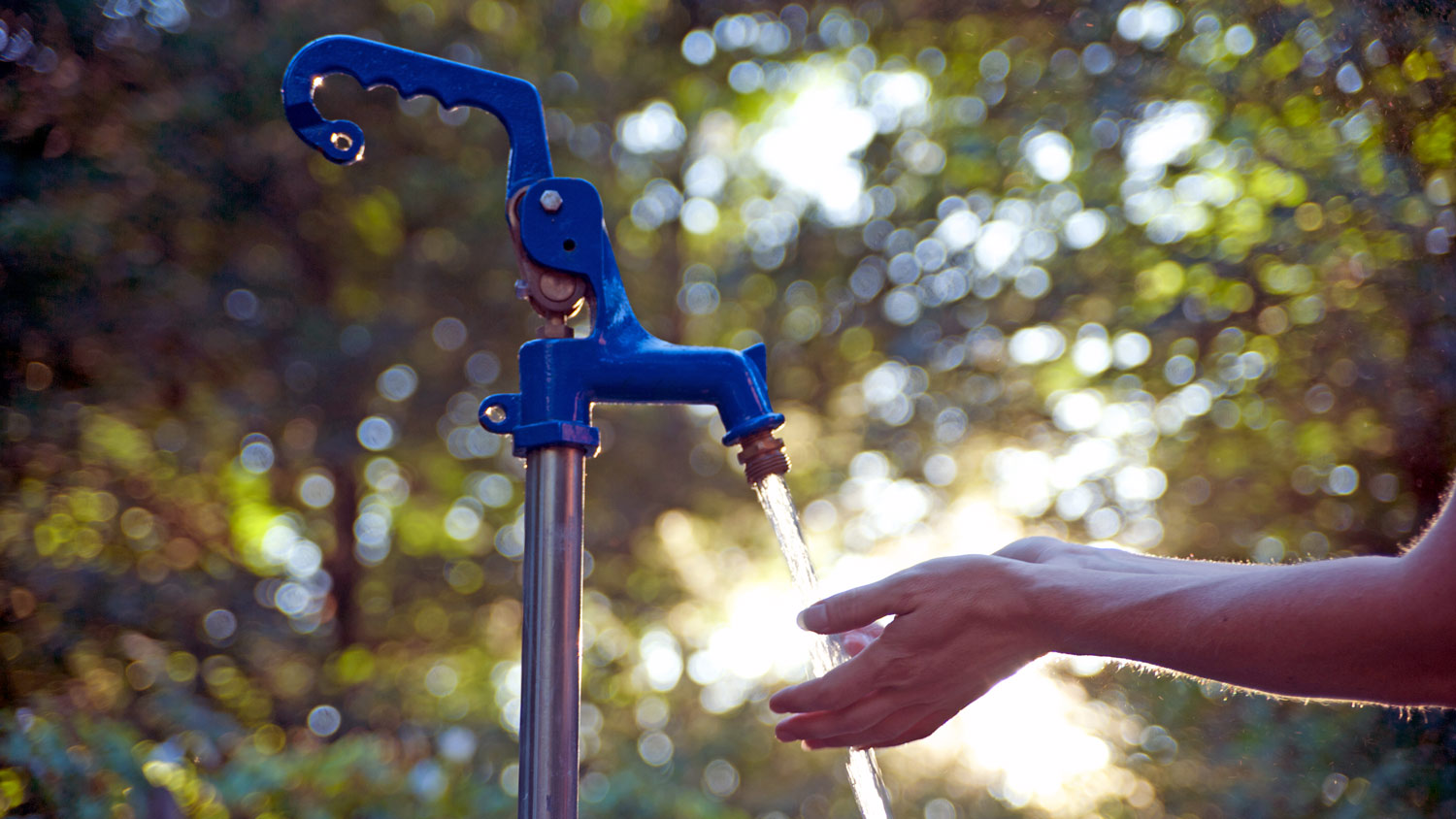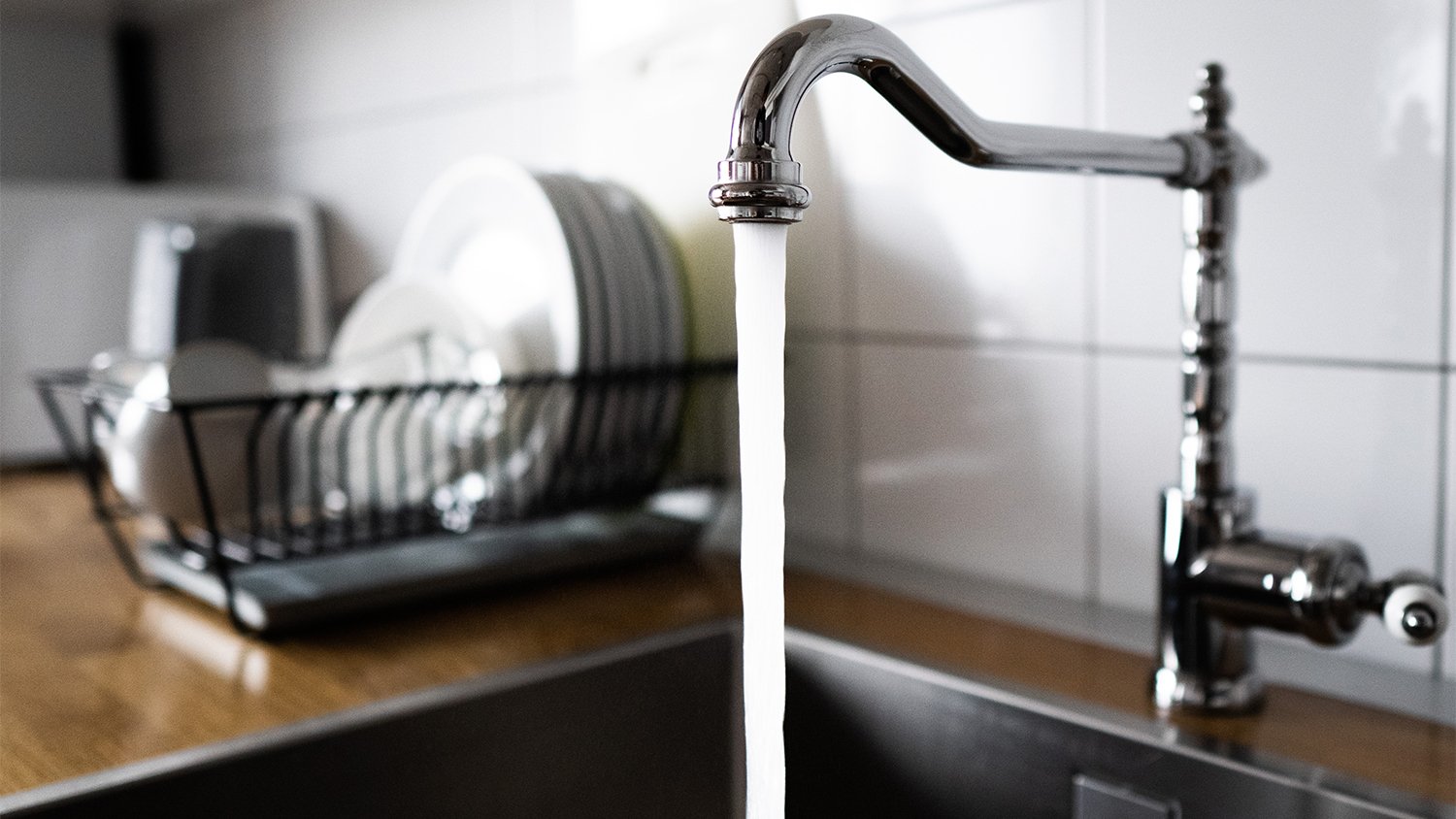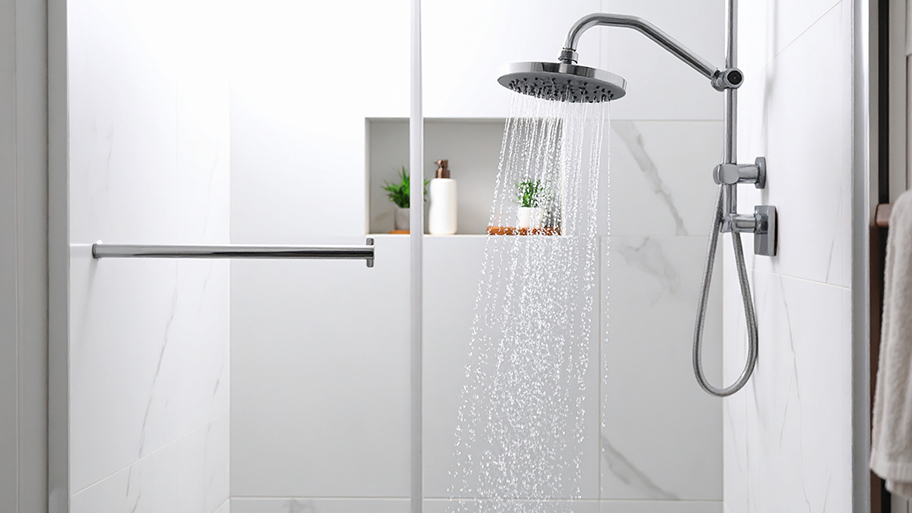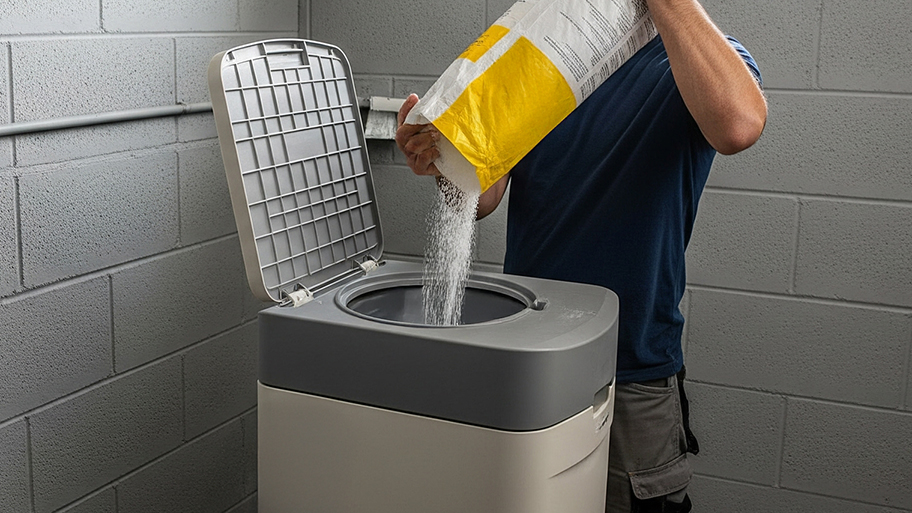
Discover how much well water treatment systems cost, including installation, maintenance, and tips to save. Get expert insights to plan your water system project.
If you're feeling salty, try using potassium chloride in your water softener


Potassium chloride works in the same way that sodium chloride does in water softeners.
There are health and environmental benefits to using potassium chloride.
Potassium chloride costs $45 to $65 for a 40-pound bag.
People with certain health conditions should not use potassium chloride.
Potassium chloride, a substitute for sodium chloride, can be used in most home water softeners. In some cases, you may need to use the same chemical for the entire life of the appliance after you install your water softener—for instance, if you started with sodium chloride, you have to stay with sodium chloride—so be sure to check your owner’s manual to make sure that you can make the switch without damaging your appliance.
Potassium chloride is a naturally occurring mineral and an essential nutrient found in fruits and vegetables, dairy products, and meat. It’s also a salt you can use in your water softening system. Your water softener works by removing minerals from hard water, and the uses salts like sodium chloride and potassium chloride to flush out the collected minerals.
When you use potassium chloride crystals in a water softener, they filter out the magnesium and calcium (the minerals that make hard water “hard”) and replace them with potassium.
Most water softeners were designed to run with sodium chloride crystals (aka salt). The only exception would be salt-free water softeners, but these aren’t as common and usually aren’t nearly as efficient.
Both sodium chloride and potassium chloride are effective when it comes to softening water. But when you use sodium chloride crystals in water softeners, they leave a residual amount of sodium in the water after the softening process has occurred. Making the swap to potassium gets rid of this issue.
For people who are looking to reduce their salt intake due to health restrictions, using potassium chloride is an option. According to the American Heart Association, the effects of excess sodium consumption include heart disease, stroke, stomach cancer, and other health conditions. As 90% of Americans consume too much sodium, any way to cut out a little here and there is beneficial for your health.
Health benefits aren’t the only advantage of using potassium chloride over sodium chloride, according to the University of Massachusetts-Amherst's Center for Agriculture, Food, and the Environment. Disposing of the brine, or saltwater, from your water softener can be a challenge. Brine is bad for plants, and if your municipality isn’t equipped to handle it, you’ll need to find other ways to dispose of your water.
Alternatively, potassium is often used industrially as a fertilizer and is good for plants. Using the backwash from a potassium-based water softener to water your plants should help them to flourish.

Generally, a water softener can’t tell the difference between potassium chloride crystals and sodium chloride crystals, and water softener maintenance will be the same regardless of what salt you use. As long as there is a mineral agent binding to the magnesium and the calcium to remove them from the hard water, most softeners will do the job without any problems. In some cases, you can even mix potassium chloride and sodium chloride crystals in your water softener.
You can always call in a water specialist near you to help you decide how to get the best quality water from your softener.
One of the main reasons people continue to use sodium chloride over potassium chloride is cost. A 40-pound bag of salt (sodium chloride) crystals usually runs around $10. Compare that with potassium chloride, which costs $54 to $65 for a 40-pound bag.
A 40-pound bag of either is enough to soften the water of a two-person household for a month. Over a year, you’d save $264 to $330—depending on the size of your water softener—by using sodium chloride instead of potassium chloride.
Sodium is also more efficient than potassium, so you would also need around 25% more potassium chloride crystals for your water softener than sodium chloride crystals.
According to the American Heart Association, people with chronic kidney disease, heart failure, diabetes, and people who take medication that alters potassium levels (including some blood-pressure-lowering medications) should be careful when increasing their potassium intake. If you fall into one of these categories, consult your doctor before making a switch in your water softener.
HORRIBLE. do not recommend to use at all. They set up two appointments for us on two separate days to install our hot water heater through our warranty company, did not show or did not call on either day and we waited all day for them. Called them multiple times with no return phone call.
Great. Punctual, professional, reasonable price. I have used them for many years, they installed a furnace and hot water tank, and thermostat in my home. They always respond promptly and address any problem.
The Spotless Solution crew arrived early. They set up their equipment and started working. As they were cleaning one of their carpet cleaning machines was leaking water onto the carpet. Also they emptied the waste water into the bath tub. While most of the carpeted area looked a bit better...
Inspected my water and softener. Found out We have oil and bacteria in our well water. Very friendly and trustworthy technician. Might have saved us some future health problems down the road.
Rick and his crew are always very polite and professional. Rick has even taken care of minor unrelated problems (i.e. replacing furnace filters and washers in leaking shut off valves) for me while on site. The quality of the water heater they installed is substantially better than what was...
From average costs to expert advice, get all the answers you need to get your job done.

Discover how much well water treatment systems cost, including installation, maintenance, and tips to save. Get expert insights to plan your water system project.

Water softener repair costs can add up, but they’re almost always worthwhile. Use this guide to see what your project is going to cost before you get started.

How much a water softener costs depends on your home’s size, and the system’s type and capacity. Our expert guide explores all the price factors.

Learn the features, advantages, and disadvantages of a salt versus salt-free water softener to see which is the better solution for hard water in your home.

Why does my tap water taste salty? Common reasons why softened water tastes salty range from a broken water main in your city's water supply to debris buildup in your brine tank.

While not all symptoms of too much chlorine in water are cause for concern, there are times when you should call a pro. Get the details in this article.